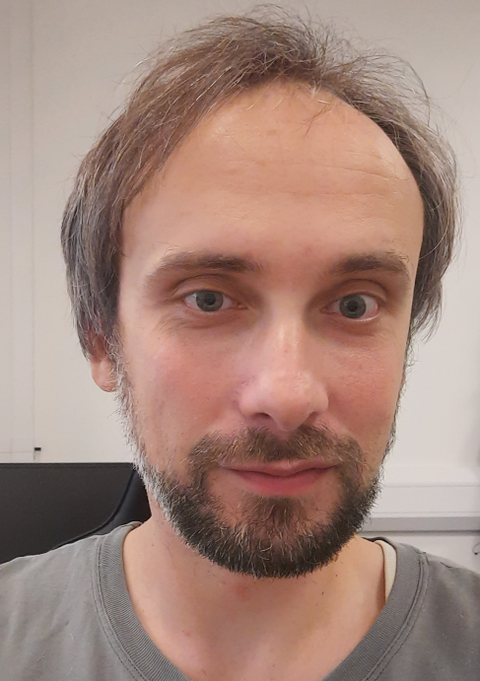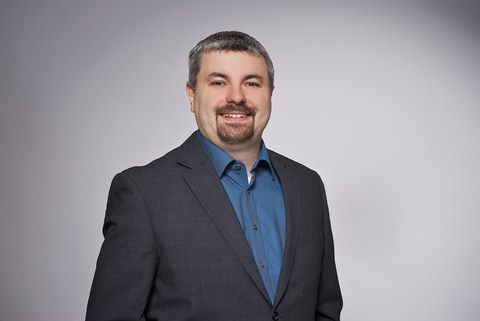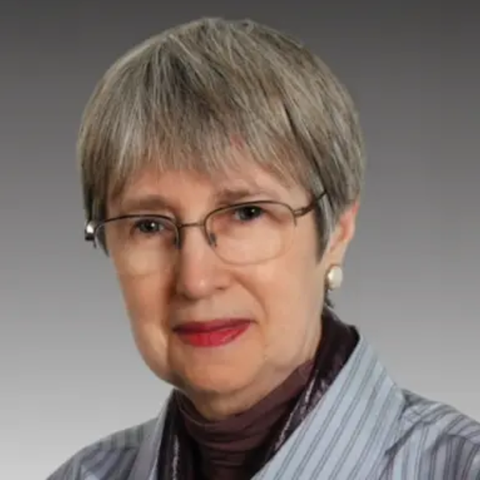ZIH-Kolloquium 2025
Inhaltsverzeichnis
Das ZIH-Kolloquium ist eine öffentliche Veranstaltung und findet in der Regel am 4. Donnerstag eines Monats statt. Alle wichtigen Eckdaten zu den Termine entnehmen Sie bitte der nachfolgenden Terminübersicht. Sie sind herzlich eingeladen!
9. October 2025, 15:00 MESZ, APB-1096/ Online BBB
Kit Gallagher (Mathematical Institute, University of Oxford) - „Personalised treatment schedules for metastatic prostate cancer — A set of novel mathematical biomarkers“ Folien
Dynamic approaches to drug scheduling, such as adaptive therapy, enable individual-level personalisation of the dosing schedule to delay patient relapse. Promising clinical results in prostate cancer indicate the potential of these protocols, but demonstrate broad heterogeneity in patient response. This naturally leads to the question: why does this heterogeneity occur, and is a ‘one-size-fits-all' protocol best for all patients?
Using deep reinforcement learning, we obtain personalised and clinically feasible treatment protocols based on individual patient dynamics. We can subsequently rationalise these findings through a mathematical tumour model, and propose new mathematical biomarkers that can identify the best responders from a clinical dataset after only the first treatment cycle. Overall, I will highlight the importance of personalised treatment schedules that explicitly account for patient heterogeneity, and the power of mathematical models to capture, analyse and facilitate this personalisation.

Kit Gallagher
Kit Gallagher completed his PhD at the University of Oxford under the supervision of Prof. Philip Maini, using population modelling, statistical inference, and deep learning to improve treatment scheduling and personalisation for metastatic prostate cancer. Throughout this, he has worked with Prof. Alexander Anderson at the Moffitt Cancer Center (Tampa, Florida), integrating clinical data into mathematical modelling and informing experimental & clinical trial design. Currently, he is starting a postdoctoral fellowship in Prof. Ignacio Vazquez-Garcia’s lab at Mass General Research Institute and Harvard Medical School, applying time series modelling to longitudinal genomic datasets.
21. August 2025, 15:00 MESZ, APB-1096/ Online BBB
Dr. Roland Zimm (Ecole Normale Superieure Lyon, France and Dublin City University, Ireland) - „Understanding the relationship between genotypes and complex phenotypes using multiscale numerical models“
Across the tree of life, one of the hallmarks of biology is the abundance of complex and diverse forms that emerge from the interplay of generative factors and evolve. Understanding these dynamical processes, connecting genotype and phenotypes, is a core objective of developmental biology, but mechanistic insight has often been limited to selected model species. In order to compare developmental mechanisms between different organisms, and test hypotheses about their evolution, multi-scale numeric modelling has proven a versatile tool. This is because this approach presents an intermediate level of epistemological complexity between abstract genotype-phenotype maps and detailed models of specific processes, allowing to study general patterns without losing biological realism.
Here, I present two different modelling frameworks that are used to examine the relationship between generative information and phenotypic complexity through developmental dynamics. First, I use a model of shark tooth development to investigate how different combinations of genetic and biomechanical parameters lead to dental diversity and how complex shapes emerge within the high-dimensional in silico morphospace. This analysis reveals general rules about variation and the transition between phenotypes of different morphological complexity that go beyond the specific organ system. Second, I introduce a general cell-based model of 3D tissue morphogenesis and organogenesis combining cell behaviours, biomechanics and morphogenetic networks. This model allows to correlate GRN and shape complexity in a systems-independent manner, revealing properties that may have shaped both micro- and macro-evolution and the way developmental mechanisms themselves tend to arrange and evolve, providing quantitative evidence for long-standing hypotheses about the origins of complex animal body plans.

Dr. Roland Zimm
Roland Zimm is an ex-fellow of the group of Andreas Deutsch/ Lutz Brusch at the ZIH, where he did his Diploma/Msc on modelling pancreas cell lineage conversion dynamics by bottom-up and top-down processes. Thereafter, he went to Helsinki, where he was a doctoral student with Isaac Salazar-Ciudad at the University of Helsinki, studying morphogenesis in complex systems and also used models to answer eco-evo-devo questions in turtle scute pattern formation. After a short stay at the Konrad Lorenz Institute close to Vienna (an institute dedicated to advancing theory in Biology and adjacent disciplines), he moved on to work with Nicolas Goudemand in Lyon at the Institute of Functional Genomics, where his projects – partly supported by a DFG fellowship - were centered around understanding the diversity of shark teeth and dentitions, using modelling and morphometrics approaches. Currently, he starts a postdoc in the Origins-of-Life lab with Sean Jordan at Dublin City University.
26. Juni 2025, 15:00 MESZ, APB-1096
Assoc. Prof. Josué Manik Nava-Sedeño (National Autonomous University of Mexico, UNAM) - „How movement shapes life: the interplay between stickiness and motility in cancer invasiveness“
Tumors are classified as benign or malignant, depending on whether their cells are confined to the main tumor mass, or whether they are able to invade other tissues. It is generally assumed that tumor cells become malignant when they lose adhesive contacts with neighboring cells in a process called epithelial-mesenchymal transition. However, recent observations suggest that malignant tumor cells may retain adhesive properties while still performing long excursions into surrounding tissue. Using a mathematical model, it is shown that tumors can gradually become malignant purely by increasing the probability of long-distance cell movement, undergoing cyclic metastatic processes at high levels of adhesion and motility.
Josué Manik Nava-Sedeño is an associate professor at the National Autonomous University of Mexico (UNAM). He earned his PhD in Mathematics at TU Dresden, where he later worked as a postdoctoral researcher on statistical methods for medical decision-making. His research involves mathematical modeling of biological systems and cellular automata. He has taught numerous undergraduate and graduate courses, and has advised dozens of dissertations on modelling, dynamical systems, and stochastic processes.
27. März 2025, 15:00 MEZ, Online BBB
Dr.-Ing. Michael Klemm (Principal Member of Technical Staff in the Compilers, Runtimes, Libraries and Tools team at AMD) - „OpenMP® Target Offloading for AMD GPUs and APUs“ Folien
Today’s supercomputers are heterogeneous systems and GPUs have been established as accelerators to boost the execution of data parallel algorithms. However,programming GPUs remains complex and usually results in code that is not portable between GPU vendors. Many software packages reflect this circumstance and provide tailored implementations for HIP, CUDA, and OpenCL.
This talk has two parts. First, it will introduce target offloading using the OpenMP API, an easy and portable way to exploit GPUs. It will also provide a glimpse at new features of the OpenMP API version 6.0 specification. Second, the talk will explain the architecture of the MI300A accelerator and the process of offloading to it, including the software changes required to take advantage of new features like Unified Shared Memory.

Dr. Michael Klemm (Principal Member of Technical Staff in the Compilers, Runtimes, Libraries, and Tools team at AMD)
Dr. Michael Klemm is a Principal Member of Technical Staff in the Compilers, Languages, Runtimes & Tools team of the Machine Learning & Software Engineering group at AMD. He is part of the OpenMP compiler team, focusing on application and kernel performance for AMD Instinct accelerators for High Performance and Throughput Computing. Michael Klemm is the Chief Executive Officer of the OpenMP Architecture Review Board.
28. Januar 2025, 11:00 MEZ, APB-1096/ Online BBB
Prof. Leah Edelstein-Keshet (Department of Mathematics, University of British Columbia Vancouver, Canada) - „Data, models and simulations of single cell motility“
Immune cells such as neutrophils (white blood cells) can navigate to sites of infection. Their directed motility is regulated by patterns of activity of intracellular proteins (such as Rac). That activity determines where filamentous actin (F-actin) will assemble and power cell protrusion. Modeling these systems has been one of my interests for some time. A challenge has always been to link spatial (PDE) models of the relevant proteins to cell shape and motion. Here I will describe two recent projects that greatly benefitted from the Morpheus software made publicly available by the TU Dresden group (Lutz Brusch, Jörn Starruß). In (1), a theoretical PDE model for Rac and F-actin that we studied analytically (PhD student Jack Hughes and collaborator Arik Yochelis) was visualized in Morpheus simulations of motile cells to show dynamic transitions between polar and ruffling cells (MSc student Jupiter Algorta). In (2), optogenetic experiments by Jason Town and Orion Weiner (UCSF) were modeled and simulated in Morpheus (by Jupiter Algorta) to explore the hypothesis that Rac promotes its own local inhibitor. Morpheus allows us to implement the PDE dynamics on the edge of a cell and to track the protrusion, motion, and response to stimuli of that cell.
(1) J. M. Hughes, S. Modai, L. Edelstein-Keshet, A. Yochelis: Travelling waves and wave pinning (polarity): Switching between random and directional cell motility. arXiv:2410.12213, 2024.
(2) J. Algorta, A. Fele-Paranj, J. M. Hughes, L. Edelstein-Keshet: Modeling and Simulating Single and Collective Cell Motility. Cold Spring Harbour Perspectives in Biology, 2024.

Prof. Leah Edelstein-Keshet (Department of Mathematics, University of British Columbia Vancouver, Canada)
Prof. Edelstein-Keshet studied Mathematics at Dalhousie University (Halifax, Canada) and received her doctorate in Applied Mathematics from the Weizmann Institute of Science (Rehovot, Israel) in 1982, where she worked with Lee Segel.
Via Brown University (Providence, USA) and Duke University (Durham, USA), she moved to the University of British Columbia (Vancouver, Canada) Dept. of Mathematics in 1989.
Her research focuses on mathematical models of cell motility, and collective behavior. She is the author of a popular interdisciplinary text book „Mathematical Models in Biology“ (SIAM). Prof. Edelstein-Keshet is a former president of the Society for Mathematical Biology (SMB, 1995-1997) and Fellow of SMB and SIAM (2014). She was awarded the Arthur Winfree Prize of SMB (2021), the John von Neumann Prize Lecturer of SIAM (2022) and the CRM-Fields-PIMS Prize of the Canadian Mathematics institutes (2025).

